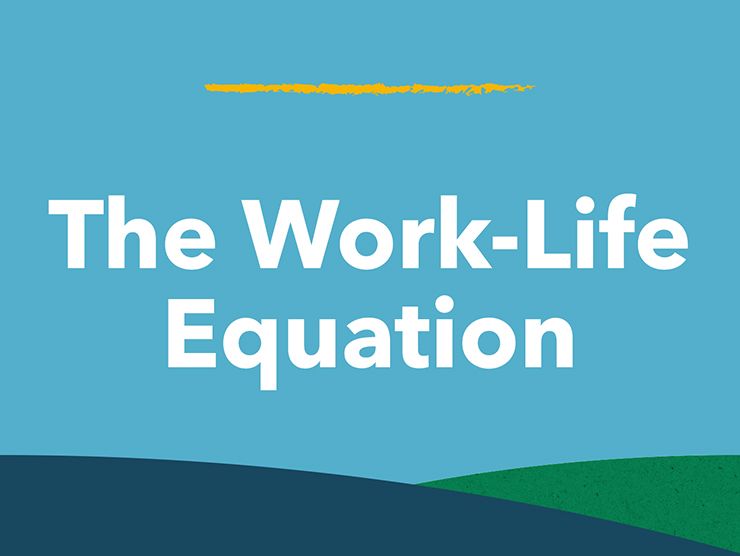Earlier this month, at the start of the Winter Olympics, viewers were treated to the mesmerizing sight of 1,200 drones creating 3D kinetic sculptures in midair.
The spectacle arose from a bunch of crazy smart people figuring out how to push drone technology to new heights. It did not come from a lead drone appearing spontaneously in a conference room to ask if he could put on a show with 1000 of his closest drone friends.
The machines have not risen. Yet.
Look, I'm all about being amazed by Alexa, and Siri and whoever the heck that is on my husband's Droid. I'm astounded that a pair of shoes I try on in a store can follow me to my computer at home (true story). I'm shocked that a website I'm shopping suggests a product I'm probably going to like better - and is 100% right. I can't believe my phone automatically tells me how long it's going to take me to get to the grocery store - and I don't even know I'm going yet. Technology and data tells us a lot (apparently that I'm extremely predictable and boring). But more than people?
Let's also remember that innovation isn't just the big "aha" moments. It's also the little things; the agile pivots, hacks, and MacGyver-isms we humans make - dare I say, innovate! - on the fly all the time. It's the mechanic who troubleshoots; the nurse who figures out how to make a bad experience less bad (read this, try not to cry); the engineers, and maintenance people, and managers with the "what if we try it this way" light bulb moments that sustain our businesses and drive teams across finish lines every day. Our workplaces need to inspire those, too.
"Imagination is more important than knowledge," Albert Einstein told us. And let's not forget that what sparks that imagination is the humanity of the people and places we work with and for. Where compassion exists, innovation flourishes...and not just inside a hard drive. And if we want to keep imaginations as dependable as our data streams, we'll have to tend to our human programs as carefully as we tend to our software.
The rise of the machines may yet come to pass (I personally am watching my web-enabled fridge very, very closely). But until then, I'm not counting my carbon friends out.
The spectacle arose from a bunch of crazy smart people figuring out how to push drone technology to new heights. It did not come from a lead drone appearing spontaneously in a conference room to ask if he could put on a show with 1000 of his closest drone friends.
The machines have not risen. Yet.
Innovation is Way More Than Tech
But to read some of the latest articles on innovation, you might think they had. One author recently credited innovation almost entirely to AI, pronouncing a shift from human ingenuity, "to data-driven machine-learning." Oh sure, carbon-based lifeforms got a little credit: "it takes plenty of talented, creative people to build these products," he said. But in the innovating department, humans were pretty much Garfunkle to Siri's Simon.Look, I'm all about being amazed by Alexa, and Siri and whoever the heck that is on my husband's Droid. I'm astounded that a pair of shoes I try on in a store can follow me to my computer at home (true story). I'm shocked that a website I'm shopping suggests a product I'm probably going to like better - and is 100% right. I can't believe my phone automatically tells me how long it's going to take me to get to the grocery store - and I don't even know I'm going yet. Technology and data tells us a lot (apparently that I'm extremely predictable and boring). But more than people?
Unleashing Our Inner MacGyvers
Humans deserve more credit. Machines interpret; humans solve and create. It's why phones were invented. It's why email was born. It's why these folks show up on Shark Tank every week to solve problems we didn't even know we had.Let's also remember that innovation isn't just the big "aha" moments. It's also the little things; the agile pivots, hacks, and MacGyver-isms we humans make - dare I say, innovate! - on the fly all the time. It's the mechanic who troubleshoots; the nurse who figures out how to make a bad experience less bad (read this, try not to cry); the engineers, and maintenance people, and managers with the "what if we try it this way" light bulb moments that sustain our businesses and drive teams across finish lines every day. Our workplaces need to inspire those, too.
"Imagination is more important than knowledge," Albert Einstein told us. And let's not forget that what sparks that imagination is the humanity of the people and places we work with and for. Where compassion exists, innovation flourishes...and not just inside a hard drive. And if we want to keep imaginations as dependable as our data streams, we'll have to tend to our human programs as carefully as we tend to our software.
The rise of the machines may yet come to pass (I personally am watching my web-enabled fridge very, very closely). But until then, I'm not counting my carbon friends out.





